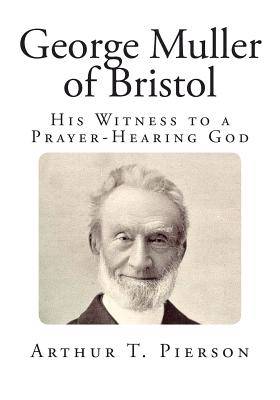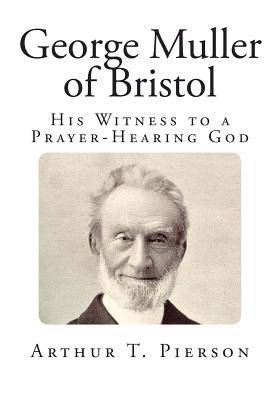
- Retrait gratuit dans votre magasin Club
- 7.000.000 titres dans notre catalogue
- Payer en toute sécurité
- Toujours un magasin près de chez vous
- Retrait gratuit dans votre magasin Club
- 7.000.0000 titres dans notre catalogue
- Payer en toute sécurité
- Toujours un magasin près de chez vous
George Muller of Bristol
His Witness to a Prayer-Hearing God
Arthur T Pierson
Livre broché | Anglais
22,45 €
+ 44 points
Format
Description
George Muller of Bristol His Witness to a Prayer-Hearing God By Arthur T. Pierson With An Introduction by James Wright In 1828, Muller offered to work with Jews in England through the London Society for Promoting Christianity Amongst the Jews, and arrived in London on 19 March 1829. By mid-May, he fell ill, and did not think that he would survive. He was sent to Teignmouth to recuperate and, whilst there, met Henry Craik, who became his lifelong friend. Muller returned to London in September, but after ten days started to feel unwell again, blaming it on being confined to his house because of his studies. He asked the Society to send him out to preach but received no reply. By the end of November he became doubtful whether the Society was the right place for him and on 12 December made the decision to leave but to wait for a month before writing. Müller returned to Exmouth on 31 December for a short holiday and preached at various meetings whilst there. He wrote to the Society in early January, requesting that they might consider allowing him to remain with them if they would allow him "to labour in regard to time and place as the Lord might direct me". This they refused to do at a meeting on 27 January 1830, communicating this to Müller in writing, and thus bringing to an end his association with the Society. He moved from Exmouth to Teignmouth and preached several times for Craik, which led to a number of the congregation asking him to stay and be the minister of the chapel of Ebenezer Chapel in Shaldon, Devon, on a salary of £55 per annum. On 7 October 1830, he married Mary Groves, the sister of Anthony Norris Groves. At the end of October, he renounced his regular salary, believing that the practice could lead to church members giving out of duty, not desire. He also eliminated the renting of church pews, arguing that it gave unfair prestige to the rich (based primarily on James 2:1-9).
Spécifications
Parties prenantes
- Auteur(s) :
- Editeur:
Contenu
- Nombre de pages :
- 320
- Langue:
- Anglais
Caractéristiques
- EAN:
- 9781497567856
- Date de parution :
- 06-04-14
- Format:
- Livre broché
- Format numérique:
- Trade paperback (VS)
- Dimensions :
- 178 mm x 254 mm
- Poids :
- 557 g

Les avis
Nous publions uniquement les avis qui respectent les conditions requises. Consultez nos conditions pour les avis.






